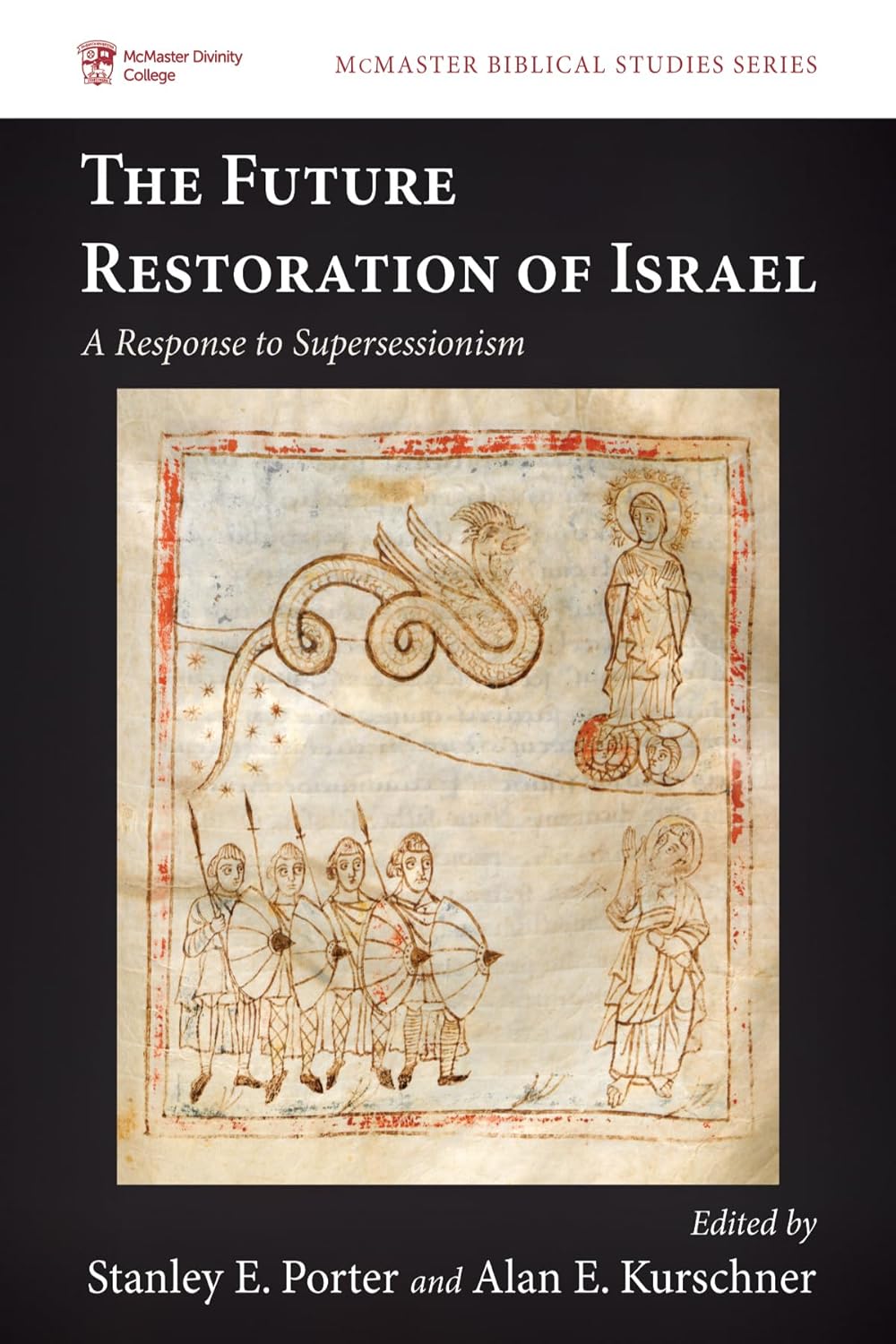A Brief Book Summary from Books At a Glance
by Benjamin J. Montoya, PhD
About the Editors
Stanley E. Porter has a PhD from the University of Sheffield and is president, dean, professor of New Testament, and holder of the Roy A. Hope Chair in Christian Worldview at McMaster Divinity College, Hamilton, Ontario, Canada. He has edited nearly one-hundred volumes, authored thirty-two books on topics in New Testament studies and related areas, and published over five hundred articles, chapters, and related writings.
Alan E. Kurschner has a PhD from McMaster Divinity College and is an instructor of Greek at the Center for Learning Biblical Greek. He has published books on topics related to the book of Revelation, including A Linguistic Approach to Revelation 19:11-20:6 and the Millennium Binding of Satan.
Introduction
The centuries old debate of the relationship between Israel and the Church will likely never go away, and it likely should not. There is so much to consider from the Old and New Testaments as well as Church History. This volume seeks to contribute to the discussion of arguing for a future restoration of Israel as a response to supersessionism. What is supersessionism? Will God restore Israel? Although no one volume will ever present the final word to these kinds of questions, this volume seeks to make a concerted effort towards tackling key questions related to these issues with more recent methodological clarity and argumentative precision amidst what is usually a quite heated and divisive issue.
Table of Contents
Chapter 1 Defining Supersessionism: An Introduction
Stanley E. Porter and Alan E. Kurschner
Part One: The Covenants and Israel’s Future
Chapter 2 The Servant of the Lord: Covenant Mediator and Light to the Nations
Robert B. Chisholm
Chapter 3 The Christian Church: Built on the Foundation of the Abrahamic, Davidic, and New Covenants
Walter C. Kaiser, Jr.
Chapter 4 The New Covenant and Supersessionism in Jeremiah 31:31-37
Mark F. Rooker
Chapter 5 A Response to the Progressive Covenantalists’ (and Others’) View of the Land Promises for Israel
Michael G. Vanlaningham
Part Two: The Nations and Israel’s Future
Chapter 6 Israel’s Future as a Nation and Reconciliation
Darrell L. Bock
Chapter 7 Zechariah 14: Its Usage in Revelation 16, 19, and 20
David J. Fuller
Chapter 8 One Nation under God: Does the World Need an Israelite Theocracy?
Mark R. Saucy
Chapter 9 Should the 144,000 in Revelation 7:3-8 Be Identified as the Great Multitude in 7:9-17? A Response to Gregory K. Beale
Alan E. Kurschner
Chapter 10 The Future Restoration of Israel: Some Theological Considerations
Alan Hultberg
Chapter 11 Was Ethnic Israel’s Mission Transferrable?
Jim R. Sibley
Part Three: Paul and Israel’s Future
Chapter 12 “Through Isaac Shall Your Seed Be Named” (Romans 9:7b): Israel and the Purpose of God in Romans
William S. Campbell
Chapter 13 Romans 9-11 and Especially Romans 11:26 in the Context of Paul’s Argument in Romans
Stanley E. Porter
Chapter 14 Ecclesiological Vision for L’Dor Vador: Paul and Jewish Identity in 1 Corinthians 9:19-23 and 7:17-24
David Rudolph
Chapter 15 Paul between Supersessionism and Pluralism: Post-Supersessionism, Romans, and N. T. Wright
J. Brian Tucker
Chapter 16 The “Seed” as Christ in Galatians 3:16 and the Wrong Deductions of Replacement Theology
Michael L. Brown
Chapter 17 Another Look at Galatians 6:16: A Grammatical and Syntactical Analysis of Paul’s Enigmatic Benediction
David I. Yoon
Part Four: Jesus and Israel’s Future
Chapter 18 The Consideration of a Future for Israel in the Light of the Apparently Bleak Consequences for Negative Responses to Jesus’ Ministry in the Gospel of Matthew
Michael J. Wilkins
Chapter 19 The Future of the Jewish People in the Light of Matthew’s Vineyard and Mark’s Fig Tree
Alan Hultberg
Part Five: Supersessionism in the Past
Chapter 20 Anti-Semitic Supersessionism: The Sharp Words that Deepened the Divide
Hélène Dallaire
Chapter 21 The Impact of Supersessionism on Jewish Evangelism
Mitch Glaser
Summary
Chapter 1: Defining Supersessionism: An Introduction written by Stanley E. Porter and Alan E. Kurschner
Will God restore the nation of Israel or is Israel’s role in God’s plan now defunct? This volume seeks to address this question that has been debated from early Christian writers until now. A popular position since the apostolic days is that the Church has replaced Israel. As such, God’s promises to Israel are fulfilled in the Church. This position has taken a variety of manifestations and conclusions among those who hold the position. For example, R. Kendall Soulen has defined at least three forms of supersessionism: punitive, economic, and structural.
This book is intended to be a diverse collection of essays. The larger goal is to present an exegetical, theological, and historical set of arguments in the larger set of literature on this topic to challenge supersessionism on the question of Israel’s futurity. The chapters in this book are divided around five larger rubrics that aim to make a contribution to combat supersessionism in favor of a future for Israel. . . .
[To continue reading this summary, please see below....]The remainder of this article is premium content. Become a member to continue reading.
Already have an account? Sign In
